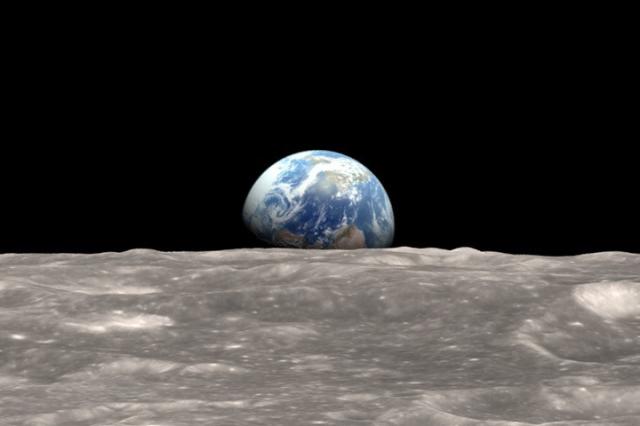About 250M years ago, 90% of species on Earth died during the Permian extinction. All of that loss created a lot of vacant niches to fill. And not long after, the first mammals, our ancestors, appeared.
Life on this pale blue dot will continue to be resilient - whether or not we’re part of it. #Thanksgiving #science #history

Writing Slowly
in reply to Sheril Kirshenbaum • • •Noah Cook
in reply to Sheril Kirshenbaum • • •In that vein, I recently finished reading Beasts Before Us by Elsa Panciroli, and it sorta begins where your post ends, with the end-Permian extinction and the rise of our synapsid ancestors, etc.
It also does a good job of explaining how diverse mammals have been as a clade, not just the groups we see today, but the vast diversity that existed in-between, the marsupials' metatherian cousins or the wild variety of Cretacious mammal niches.
amazon.com/Beasts-Before-Us-Or…
floydgump
in reply to Sheril Kirshenbaum • • •hömma
in reply to Sheril Kirshenbaum • • •@p_calleri
ah okay, all‘s well that ends well, so let’s just carry on in our habitual ways until we’re all dead - is that what you’re saying?
I hope not. I don’t think we have the right to destroy the home of all our fellow species, thereby killing most of them, even if we were all okay with a collective suicide, which I’m not.
zilla
in reply to Sheril Kirshenbaum • • •Bryan McElveen
in reply to Sheril Kirshenbaum • • •One World One People
in reply to Sheril Kirshenbaum • • •zombywoof
in reply to Sheril Kirshenbaum • • •gmsizemore
in reply to Sheril Kirshenbaum • • •Michael de Jong 🍉
in reply to Sheril Kirshenbaum • • •Slidingspaces
in reply to Sheril Kirshenbaum • • •Canadian Curmudgeon
in reply to Sheril Kirshenbaum • • •Nothing.
xs4me2
in reply to Sheril Kirshenbaum • • •artnetworx
in reply to Sheril Kirshenbaum • • •My camera shoots fascists
in reply to Sheril Kirshenbaum • • •I volunteered on a couple dinosaur digs a long time ago and I asked the paleontologists there if they thought humans would be around in a million years. To a one they said "nope".
Chipping out a baby Parasaurolophus skull from solid rock, it was easy to imagine the wave upon wave of fabulous creatures that once roamed the earth at one time or another, only to become fossils by the time the next ones were leaving footprints in the sediments above them. In the future, in a length of time from now that is barely a rounding error in the last 4 billion years, Earth will be covered with another unimaginably weird and wild menagerie.
We're just messing it up for ourselves and the other creatures here at the moment. We could nuke ourselves 50 times over and the ecosystem from undersea vents would take over in a million years or two.
The idea that we're awesome enough to destroy the world is the same hubris that will lead us to destroy ourselves instead.
Sheril Kirshenbaum
in reply to Sheril Kirshenbaum • • •Coach Pāṇini ®
in reply to Sheril Kirshenbaum • • •We’re all miracles of space dust.
netflix.com/us/title/81243961?…
@Sheril
Faye
in reply to Sheril Kirshenbaum • • •Son Light Life
in reply to Sheril Kirshenbaum • • •Barry Goldman
in reply to Sheril Kirshenbaum • • •we probly need something LIKE religion to help us remember to pay attention to that miracle. i think most of us don't take so much opportunity to sit back from the slog of life to pay attention to such miracles.
i would call science (a very organized social process) a tradition similar to religion in this respect.
religion does not need a god nor supernatural. just practices in the attention on what life IS.
Angelmountain
in reply to Sheril Kirshenbaum • • •